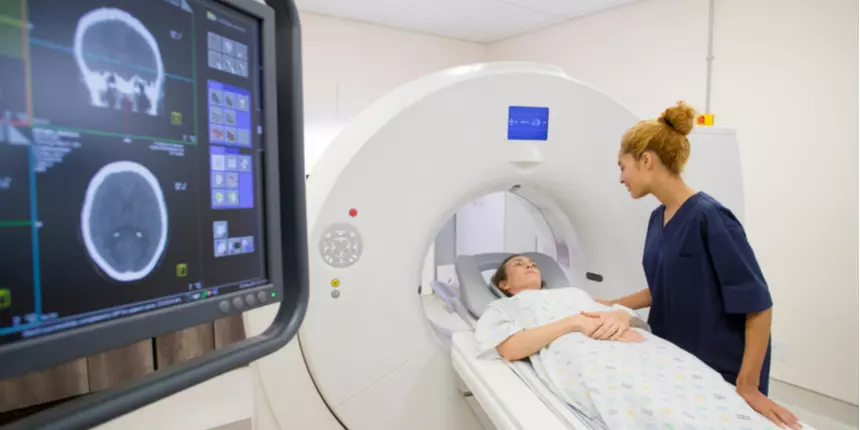
A Bachelor of Science (B.Sc) in Radiology is a comprehensive undergraduate program designed to equip students with the knowledge and skills to work in medical imaging and radiological technology. Below are the full details about the course:
Overview
- Degree: Bachelor of Science in Radiology or Radiologic Technology.
- Duration: 3-4 years (varies by country or institution).
- Type: Full-time undergraduate program.
- Eligibility:
- Completion of 10+2 education (or equivalent) with a science background.
- Subjects typically required include Physics, Chemistry, and Biology/Mathematics.
- Minimum aggregate marks (varies, usually 50-60%).
Key Subjects and Curriculum
The curriculum integrates theoretical learning with practical training in medical imaging. Key subjects include:
-
Year 1 (Foundation)
- Human Anatomy and Physiology
- Basic Physics and Radiation Physics
- Introduction to Radiology and Imaging Techniques
- Patient Care and Communication Skills
-
Year 2 (Core Radiology Studies)
- Radiographic Techniques (X-Ray, CT, MRI, Ultrasound)
- Radiation Protection and Safety
- Pathology and Radiology Correlation
- Equipment Maintenance and Quality Control
-
Year 3 (Advanced Studies and Clinical Training)
- Interventional Radiology
- Advanced Imaging Modalities (PET, SPECT)
- Research Methodology
- Clinical Training and Internship
-
Optional Year 4 (For countries with a 4-year curriculum)
- Specializations in fields like Cardiac Imaging, Oncology Imaging, or Musculoskeletal Imaging.
- Advanced research project or thesis.
Specializations
- Diagnostic Radiology
- Radiation Therapy
- Interventional Radiology
- Nuclear Medicine
Skills Developed
- Operation of imaging equipment (X-ray, MRI, CT, Ultrasound).
- Patient positioning and care during procedures.
- Understanding radiation safety protocols.
- Image analysis and interpretation (basic level).
Career Opportunities
After completing the program, graduates can work in the following roles:
- Radiologic Technologist: Operating imaging equipment and assisting radiologists.
- MRI/CT Technician: Specializing in specific imaging techniques.
- Radiology Assistant: Helping in diagnosis and patient management.
- Radiation Safety Officer: Ensuring safety protocols in imaging centers.
- Academic/Research Roles: Teaching or research in radiological sciences.
Workplaces:
- Hospitals
- Diagnostic Imaging Centers
- Research Laboratories
- Medical Equipment Manufacturing Companies
Future Prospects
- Postgraduate Studies:
- Master of Science (M.Sc) in Radiology or related fields.
- Specialized certifications in advanced imaging technologies.
- Professional Certifications:
- Certifications in MRI, CT, or Ultrasound from recognized boards like the ARRT (American Registry of Radiologic Technologists).
